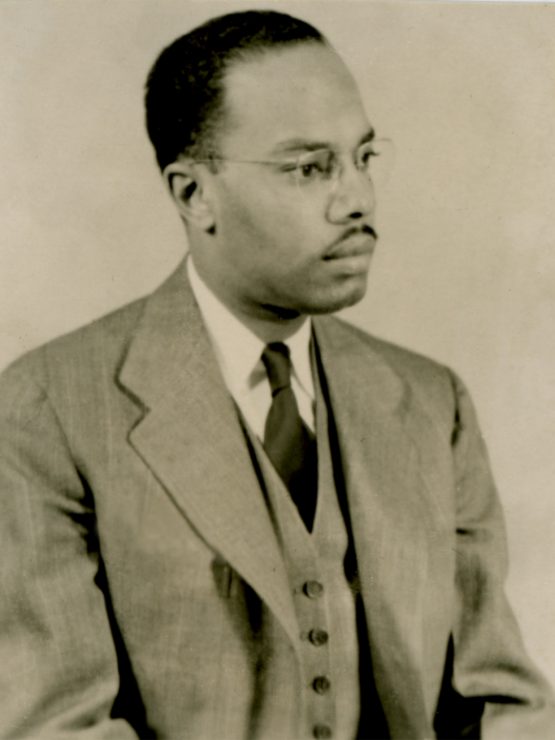On this dayAug 06, 1942
Interstate Railroad Company Adopts Policy Denying Service to Black Passengers
On August 6, 1942, Southern Railway, an interstate railroad company based in Washington, D.C., adopted a policy effectively denying dining service to Black passengers on its rail cars.
For years, the Southern Railway policy mandated that trains serve white passengers and Black passengers meals at different times, which often resulted in the denial of meals to Black passengers. In 1942, Southern Railway further entrenched its commitment to segregation and to denying its Black customers service by adopting a policy which reserved 10 of the train’s 11 dining tables exclusively for white passengers at all times. The one remaining table in the dining car that was theoretically open to Black passengers was also available for use by white passengers and was to be given to white passengers upon request. If Black passengers requested service while white passengers were dining, “they should be advised that they will be served just as soon as those compartments are vacated.”
In 1942, Elmer W. Henderson, a Black attorney, civil rights leader, member of President Franklin D. Roosevelt’s Fair Employment Practices Commission, and one of the first Black graduates of Georgetown University Law Center, traveled first-class on a Southern Railway train from Washington, D.C., to Atlanta. The train’s dining car remained occupied with white passengers for the duration of his journey, and railroad employees denied Mr. Henderson a dining table based on his race. At 9 pm, the train reached Greensboro, North Carolina, and the dining car ceased serving passengers. Neither Mr. Henderson nor any other Black passengers ever had a chance to eat dinner.
Mr. Henderson subsequently filed a complaint with the federal Interstate Commerce Commission, alleging that the railroad’s policy violated the Interstate Commerce Act and the Equal Protection Clause of the U.S. Constitution. The ICC denied relief, finding that Mr. Henderson “had sustained no compensable damage as a result of the disadvantage caused him” by Southern Railway. It would take five years for the Supreme Court to reexamine Mr. Henderson’s case. While ruling in Henderson v. United States that Southern Railway’s policies violated the Interstate Commerce Act, the Court avoided declaring racial segregation unconstitutional, paving the way for that practice to continue for years.
To learn more about America’s long and enduring history of racial segregation, as well as its ongoing legacy, read EJI’s report, Segregation in America.

Elmer W. Henderson
About EJI
The Equal Justice Initiative works to end mass incarceration, excessive punishment, and racial inequality.
About this website
Until we confront our history of racial injustice and its legacy, we cannot overcome the racial bias that exists today.
 Learn more
Learn more